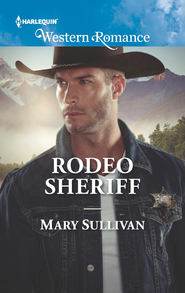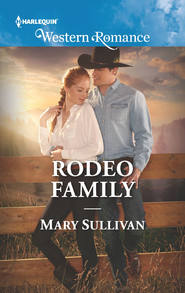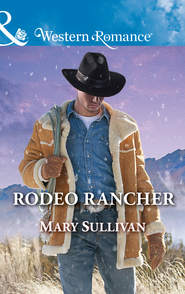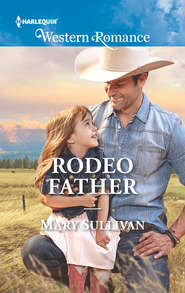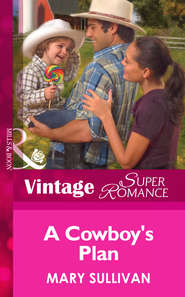По всем вопросам обращайтесь на: info@litportal.ru
(©) 2003-2024.
✖
Safe in Noah's Arms
Автор
Год написания книги
2019
Настройки чтения
Размер шрифта
Высота строк
Поля
So, the spoiled girl knew how to be reasonable. Okay, he could be, too.
“Do you know how to farm?”
“Nope.”
“Do you keep houseplants?”
“Never.”
“Do you know anything about plants?”
“Nada.”
“Oh, crap.” Visions of how useful she would be to him evaporated like the last vestiges of morning dew dried up by the sun. He stared at Monica in her designer jeans and absolutely useless loafers.
His silly dreams of a capable helper came to a screeching halt. She was going to be useless to him—even less so than he’d imagined.
None of his friends or family had the time to help him out, and he couldn’t afford to hire employees.
Instead, he was stuck with Monica Accord.
What made it all truly rotten was that despite despising everything that Monica stood for—her princess-in-an-ivory-tower lifestyle, her frivolity, her designer clothing that embodied crass consumerism, her uselessness—Noah still felt those awful pangs, the ones he’d had in high school that had been worse than the growing pains in his long legs, worse than the way the other kids made fun of his retro clothing and taunted him his fervent fights to save the environment. He still felt those awful, unwelcome and debilitating pangs of unrequited puppy love.
For two hundred long, long hours, he would be stuck with Monica, golden goddess, former cheerleader and prettiest prom queen Accord High had ever seen.
As he led her around to the back porch of the house to hunt down a pair of rubber boots that might fit her, he said it again, with feeling. “Oh, crap.”
* * *
FOR THE FOURTH time in the two hours Monica had been weeding, Noah yelled at her.
“What are you doing?” Along with his harsh shout came a shadow that cut off light.
Behind his head, the sun created a halo around Noah’s too-long red hair. Wisps of it had escaped his ponytail and curled in the heat.
“That’s not a weed,” he cried. “It’s a radish.”
Rats. She’d screwed up again. Cramming it back into the earth, she shoved soil around the roots with shaking hands. She’d been pulling up too many plants. She just couldn’t tell them apart. She wished she could. Contrary to what Noah seemed to think, she didn’t like screwing up, especially when he’d drilled into her that she was wasting food.
“It will be okay.” She picked up the pail beside her and watered the radish. “Honest, I’ll check it again tomorrow to make sure it survived.”
He crouched down, too close. Noah had grown up well. Really well. His eyes sparkled like bright green gems. The man exuded a lot of heat. His mouth, a flat slash that divided his red mustache and beard, signaled his disapproval. Usually when she saw him around town, his lips were full and on the verge of an ever-ready smile—not that she’d noticed.
“No, Monica, it won’t recover from being yanked out of the soil when it’s still so young. Would you recover?”
Abruptly, he stood and stomped away, clearly agitated, but spun back and moved close to her again. “Every plant that dies is food that doesn’t make it to someone’s plate. Understand?”
“I know. You’ve already told me a million times since I got here.”
“You know nothing about hunger or poverty. All you’ve ever known is privilege.”
Why did he take such pleasure in making her feel ashamed of who she was? “I get it, Noah. I truly do.” Monica stood, because she didn’t like that he was taller than her at the best of times, let alone when she was kneeling in the dirt. “Whether or not you choose to believe me, I’m trying my hardest to do a good job.”
She took off her sun hat and wiped her forehead with her sleeve. It came away damp with sweat. “You have to understand how new this is to me, Noah.” She touched his arm, but he pulled away, so she dropped her hand to her side. Even before she’d hit him on Friday night, he’d always seemed to go out of his way to avoid her. Why did he dislike her so much? “I want to get this right. I really do. Okay?”
“Okay,” he muttered, but she had the sense it wasn’t, that there was something going on beneath the surface that Noah wasn’t explaining to her—something she couldn’t figure out on her own.
It messed with her nerves so she gave up trying. “I have to leave. I start work in forty-five minutes and I have to wash up first.” She took a small pink notebook and matching pen out of her back pocket and wrote down a sentence indicating she’d put in her first two hours of her sentence. She handed the book to him. “Initial here, please.”
“Aren’t you the organized little beaver?” Ignoring the pen, he fished a pencil stub out of his jeans and scrawled his initials across the page, a messy slash beside her tidy script.
She held back a knee-jerk response, totally getting that he had a right to be angry, but his sarcasm hurt. She rose above it by ignoring it. One of them had to be the adult here.
“Write down all of the details about your bike, too.”
When he’d finished and handed the notebook back to her, she said, “I’ll be back tomorrow morning at the same time.”
She trudged to her car, tired already, and she still had to put in a full day at work.
With Noah’s hot gaze burning through the shirt on her back, she started the car and drove away.
Once in town, she detoured to her apartment to shower and change for work. It wasn’t quite ten and here she was having her second shower of the day.
She threw on a bit of makeup then ran out the door.
For over a year now, Monica had been working at The Palette, the only art shop in town. She stepped through the doorway and found the gallery cool, a godsend after the past two hours spent under the hot sun.
The owner, Olivia Cameron, Noah’s mom, stood talking to one of the sculptors whose work they stocked. Gorgeous Aiden McQuorrie had his focus squarely centered on Olivia. Even though she was fifteen years his senior, she held him in sway. Monica sighed. So romantic. Everyone in town knew they were getting it on every chance they got. In the year since Olivia had started to date Aiden, after much persuasion on Aiden’s part to get her over her reluctance because of their age difference, she had blossomed.
Monica smiled. Understandably, Aiden was Olivia’s favorite sculptor.
When Aiden stepped past Monica to leave, his glance sympathetic—he knew how angry Olivia was with her—he squeezed her arm then left the gallery.
Olivia approached, every beautifully dyed strand of hair in place, her peach suit expensive and understated—her sophisticated demeanor a sharp contrast to Aiden’s rough-hewn, restless energy.
Another case of the attraction of opposites, like me and Billy.
Olivia, a former housewife, had started the art gallery years ago and, through determination and sheer grit, had nurtured it into a successful enterprise.
Oh, how Monica admired her. She would love to be a businesswoman, but had no idea what kind of business she would start.
Working on commission in an art gallery and living on a small widow’s benefit, Monica didn’t have a lot of money, wasn’t married and didn’t have children, nor did she really have a career. In short, she was floating through life, about as aimless as a leaf drifting on the surface of a stream.
She certainly wasn’t directing her life toward any place she wanted to go.
Olivia glared at Monica. It was all too much—first her son and now her. Monica’s nerves jangled like someone plucking loose guitar strings. Olivia had been cool with her since she’d run down her son last week.
It made Monica’s heart ache because she truly liked Olivia. They’d become good friends. Monica had—dare she think it?—begun to see Olivia as a mother figure.






